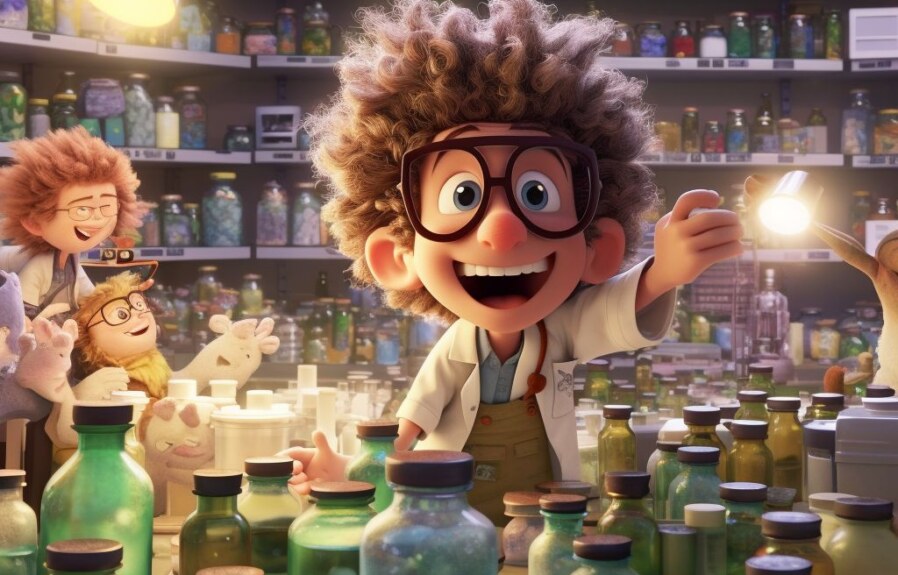Alcohol consumption can have various adverse effects on our health, leading to problems such as liver damage, heart disease, and even cancer. While it’s best to avoid drinking altogether, sometimes we find ourselves in situations where we accidentally consume too much alcohol. Often, people search for ways to quickly dilute alcohol in their system to reduce its intoxicating effects. However, the body processes alcohol at a steady rate, making it challenging to speed up the process. In this article, we will delve deeper into the subject and discuss the most effective ways to dilute alcohol in your system to minimize its negative impacts on your health.
1. Understanding Alcohol Metabolism: How Your Body Processes Alcohol
Before discussing how to dilute alcohol in your system, it’s important to understand how your body processes alcohol. When you drink alcohol, it enters your bloodstream through the stomach and small intestine. The liver acts as the primary organ responsible for breaking down alcohol in your body.
Alcohol is metabolized at a rate of approximately 0.015% to 0.02% blood alcohol concentration (BAC) per hour. This means that if you have consumed five alcoholic drinks and your BAC is at 0.10%, it would take approximately five to seven hours for your body to fully metabolize the alcohol and bring your BAC to 0%.
Factors such as age, weight, gender, and liver function can all affect alcohol metabolism. Individuals with smaller body frames or a slower metabolism may take longer to metabolize alcohol and may become intoxicated faster.
It’s important to note that drinking water or other non-alcoholic beverages does not speed up the metabolism of alcohol in your body. The liver can only metabolize a certain amount of alcohol at a time, no matter how much water is consumed. The only way to reduce the concentration of alcohol in your bloodstream is by time-allowing your liver to process it or through other methods such as physical activity or consuming food.
Key Point: The liver is responsible for metabolizing alcohol in your body. The rate of metabolism is affected by factors such as weight, age, and liver function, and cannot be increased by drinking water.
2. Factors that Affect Alcohol Dilution in the Body
Alcohol dilution in the body is largely influenced by various factors that differ from person to person. Understanding these factors is crucial to identifying the best ways to reduce the effects of alcohol in your system. Here are some of the :
Body weight
One of the most crucial is a person’s body weight. Alcohol is primarily metabolized by the liver, and the liver can only process a certain amount of alcohol per hour. Therefore, people with a higher body weight tend to have a lower concentration of alcohol in their blood than those with a lower body weight. This is because there is more water in their body for alcohol to dilute in.
Gender
Gender is another significant factor that affects alcohol dilution in the body. Women tend to have a higher concentration of alcohol in their blood than men consuming the same amount of alcohol. Women’s bodies have a lower water content than men’s bodies, making alcohol more concentrated in their blood.
Food intake
The amount of food in the stomach can also help in diluting alcohol in the body. Eating food before or during alcohol consumption can slow the absorption of alcohol into the bloodstream and lead to slower alcohol’s effects. This is because food provides a physical barrier for alcohol to get absorbed into the bloodstream. Therefore, it is essential to have a meal before or during drinking to reduce alcohol’s effects.
Genetics
Genetics play a crucial role in alcohol metabolism. Some people have a genetic predisposition to process alcohol at a faster rate than others. Genetic factors also affect body fat and muscle percentages, which influence alcohol dilution in the body.
Medications
Certain medications can affect alcohol metabolism and affect alcohol dilution in the body. Some medications slow down or speed up alcohol metabolism, leading to a higher or lower concentration of alcohol in the bloodstream. It is essential to consult a doctor before drinking if you’re taking any medication to avoid adverse reactions.
It is crucial to understand these factors that affect alcohol dilution to make an informed decision on how much alcohol intake is appropriate for you. Nonetheless, it is essential to note that prevention is better than cure and that excessive alcohol consumption is harmful to your health.
3. Best Ways to Dilute Alcohol in Your System and Reduce Intoxication
Alcohol is metabolized in the liver at a rate of one standard drink per hour. However, there are a few things you can do to help dilute the alcohol in your system and reduce the risk of intoxication.
One of the best ways to dilute alcohol in your system is to drink plenty of water. Alcohol is a diuretic, which means it dehydrates your body and causes you to lose fluids. Drinking water can help flush out the alcohol from your system and prevent dehydration. It can also help reduce the side effects of alcohol, such as headaches and nausea.
Another effective way to dilute alcohol in your system is to eat food. Eating can help slow down the absorption of alcohol in your bloodstream. It can also help protect your stomach lining from the harmful effects of alcohol. Eating high-protein foods like meat, eggs, and cheese may be particularly effective since they can help metabolize alcohol faster.
Here are some other ways to dilute alcohol in your system:
- Take breaks between drinks and limit the number of drinks you consume.
- Alternate alcoholic and non-alcoholic drinks.
- Add ice or water to your drinks to lower their alcohol content.
- Avoid carbonated drinks, which can increase alcohol absorption.
- Avoid mixing alcohol with energy drinks, which can mask the effects of alcohol and lead to excessive consumption.
It’s important to remember that diluting alcohol in your system does not make it safe to drive or operate machinery. It’s crucial to always have a designated driver, use ride-sharing services, or public transportation if you have been drinking. By following these tips, you can help dilute the alcohol in your system, reduce your risk of intoxication, and make safer choices when consuming alcohol.
4. Best Practices for Staying Safe and Avoiding Excessive Drinking
While it’s okay to enjoy a drink or two occasionally, excessive drinking can be detrimental to your health and personal life. Here are some best practices to keep in mind to stay safe and avoid excessive drinking:
1. Know Your Limitations
Everyone metabolizes alcohol differently, and some people may be able to drink more without feeling the effects. It’s essential to understand how many drinks it takes for you to feel intoxicated and to avoid going over that limit. Keep in mind that driving under the influence is not just illegal but also dangerous.
2. Stay Hydrated
Alcohol is dehydrating, and it can make you feel dizzy and fatigued if you’re not drinking enough water or other non-alcoholic beverages. Drinking water throughout the night can help slow the body’s absorption of alcohol and prevent dehydration. Try alternating between alcoholic and non-alcoholic drinks to stay hydrated and maintain a clear head.
3. Avoid Skipping Meals
Drinking on an empty stomach can increase the chance of getting drunk faster and experiencing the negative effects of alcohol. Eating a meal before or while drinking can help slow down the absorption of alcohol into the bloodstream, keeping you from getting too intoxicated too quickly.
4. Surround Yourself with Responsible Drinkers
The people you surround yourself with can influence your behavior and affect your drinking habits. If you’re trying to stay safe and avoid excessive drinking, try to socialize with people who follow similar values and habits. Choose friends who won’t pressure you into drinking more than you’re comfortable with, or those who will stop you from drinking too much.
Remember that excessive drinking can lead to long-term health problems, including liver damage, high blood pressure, and addiction. If you’re struggling with excessive drinking or addiction, seek professional help right away to get the support you need.
5. Effects of Excessive Alcohol Consumption and How to Seek Help if Needed
Excessive alcohol consumption can have various harmful effects on the body. It can put a strain on the liver and other organs, lead to dehydration, and cause impairments to cognitive and motor skills. It can also increase the risk of accidents, injuries, and health problems such as high blood pressure, stroke, heart disease, and cancer. Furthermore, regular heavy drinking can lead to alcohol dependence and addiction, which can have severe emotional, social, and economic consequences.
If you or someone you know is struggling with alcohol misuse or addiction, it is important to seek help. There are various resources available such as support groups, counseling, therapy, medication, and rehabilitation centers. Seeking professional help can increase the chances of recovery and prevent further harm. It is also important to educate oneself about the risks and effects of alcohol consumption, as well as to adopt healthier coping mechanisms and lifestyle habits.
Signs of Alcohol Misuse and Addiction
It is not always easy to recognize the signs of alcohol misuse and addiction, as they can vary depending on the person and the severity of the problem. However, some common indicators include:
- Drinking more frequently or in larger amounts than intended
- Craving or obsessing over alcohol
- Being unable to control or stop drinking
- Neglecting responsibilities or relationships due to drinking
- Experiencing withdrawal symptoms when trying to quit or reduce drinking
- Continuing to drink despite negative consequences
- Building tolerance and needing more alcohol to feel the same effects
How to Seek Help for Alcohol Misuse and Addiction
If you suspect that you or someone you know may have an alcohol problem, it is important to seek help as soon as possible. Some steps you can take include:
- Talking to a trusted friend or family member
- Consulting a healthcare professional or addiction specialist
- Joining a support group such as Alcoholics Anonymous
- Considering therapy or counseling
- Enrolling in a rehabilitation program
- Making positive lifestyle changes such as exercising, socializing, and practicing stress-relieving techniques
Remember, seeking help is a brave and important step towards recovery. Don’t hesitate to reach out for support and guidance.
People Also Ask
How long does it take to flush alcohol out of your system?
It takes about one hour for the average person to metabolize one standard drink. However, factors such as age, weight, gender, and overall health can affect the rate of alcohol metabolism.
What can you drink to dilute alcohol in your system?
Drinking plenty of water can help dilute alcohol in your system. Also, consuming foods high in water content such as fruits and vegetables can help rehydrate the body and speed up the elimination of alcohol.
Can drinking coffee help dilute alcohol?
No, drinking coffee does not help dilute alcohol in your system. It may temporarily make you feel more alert, but it does not affect the rate of alcohol metabolism.
Is it safe to exercise while alcohol is in your system?
Exercising while alcohol is still in your system is not recommended. Alcohol impairs coordination, judgment, and balance, making it more likely to cause accidents or injuries during physical activity.
Does eating before drinking help dilute alcohol?
Eating a meal before drinking can help slow down the absorption of alcohol, but it does not dilute alcohol in your system. The only way to reduce the amount of alcohol in your system is to wait for your body to metabolize it.
Conclusion
Diluting alcohol in your system is not a guaranteed solution. The only way to reduce the amount of alcohol in your system is to wait for your body to metabolize it. Drinking water, staying hydrated, and avoiding physical activity can be safe ways to alleviate the negative effects of alcohol on the body. It is always recommended to consume alcohol in moderation and avoid situations where it may impair your ability to make safe decisions.



